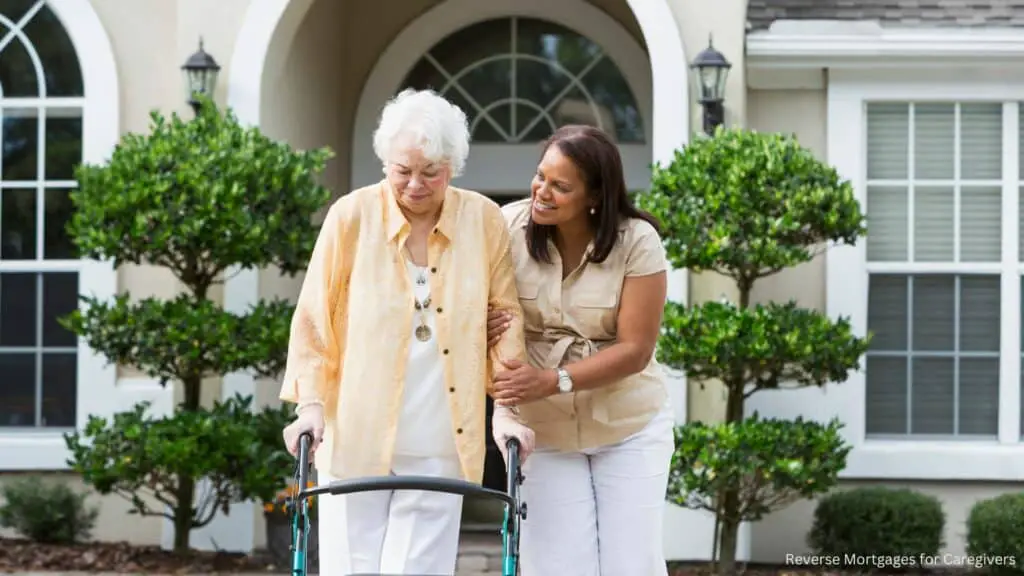Reverse mortgages offer financial support without depleting savings. They allow homeowners to convert part of their home equity into cash. This option is particularly useful for caregivers facing financial strain.

Benefits and Considerations of Reverse Mortgages for Caregivers
Caregivers can manage daily expenses more effectively with reverse mortgages. However, it’s crucial to understand the terms and impacts on estate inheritance. Examples include reduced financial stress and sustained homeowner status.
Enhanced Financial Flexibility
Reverse mortgages provide caregivers the ability to manage daily expenses without depleting personal savings. This financial tool converts part of a home’s equity into cash, offering a buffer that eases the immediate financial pressures often associated with caregiving.
Understanding the Terms
It’s crucial for caregivers to fully understand the conditions and terms associated with reverse mortgages. These might include the loan’s impact on the homeowner’s estate and any potential effects on inheritance for heirs.
Long-term Security
While reverse mortgages can reduce financial stress by providing a steady flow of income, they also allow caregivers to maintain homeowner status. This security is vital for both emotional stability and financial planning, ensuring caregivers can focus on their familial responsibilities without the added stress of unstable living situations.
Case Study: A Caregiver’s Experience
John, an only child responsible for his elderly mother’s care, faced significant financial challenges due to her mounting medical bills. Opting for a reverse mortgage allowed him to access the equity in his mother’s home, thereby providing the necessary funds to cover healthcare costs without tapping into his own savings. This strategic financial decision not only preserved John’s financial stability but also ensured continuous care for his mother in the comfort of her own home, illustrating the practical benefits of reverse mortgages in real-life caregiving scenarios.
Shifting Perceptions on Reverse Mortgages
Recent data from WSFS Mortgage highlights a positive shift in perceptions toward reverse mortgages. A substantial 79% of respondents nationwide now see these loans as a way to extend their stay in their homes. Additionally, 76% recognize that reverse mortgages can enhance cash flow in retirement. These statistics suggest a growing acceptance of reverse mortgages as a viable financial strategy for seniors looking to maintain their independence and financial stability.

Reverse mortgages for caregivers provide a strategic financial tool to support aging relatives without risking personal financial security. It’s essential for caregivers to consult with financial advisors to navigate this option wisely.
Related posts:
 Affordable Rental Provider Repays $710K to Arlington County
Affordable Rental Provider Repays $710K to Arlington County
 Decline in Home Prices: Anticipating a Shift in 2024
Decline in Home Prices: Anticipating a Shift in 2024
 Maryland Governor Legislative Agenda: Military Families, Housing, and Public Safety in 2024
Maryland Governor Legislative Agenda: Military Families, Housing, and Public Safety in 2024
 Zillow 2023 Home Sales Analysis: Prime Listing Time for Maximum Profit
Zillow 2023 Home Sales Analysis: Prime Listing Time for Maximum Profit
 Spruce Hill’s Battle: Preserving History Against Student Housing Expansion
Spruce Hill’s Battle: Preserving History Against Student Housing Expansion





